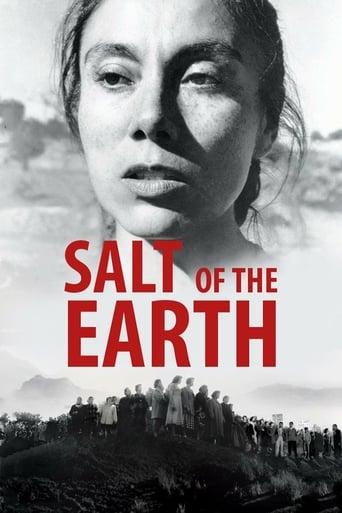

If you like to be scared, if you like to laugh, and if you like to learn a thing or two at the movies, this absolutely cannot be missed.
... View MoreThe movie is wonderful and true, an act of love in all its contradictions and complexity
... View MoreI think this is a new genre that they're all sort of working their way through it and haven't got all the kinks worked out yet but it's a genre that works for me.
... View MoreI think this is a new genre that they're all sort of working their way through it and haven't got all the kinks worked out yet but it's a genre that works for me.
... View MoreI'm so glad I saw this film! It shows the power of solidarity - people of all backgrounds, gender, and whatever other category might otherwise be used to separate them, uniting together to gain the power and dignity they deserve as human beings. It took some of them a while to learn, but the common struggle tears down walls. Rise up, and push everyone else up with you!
... View MoreLooking back at this film from the perspective of the Trump administration we could use a little radicalism such as the men and women demonstrate in Salt Of The Earth.Based on a real strike by Mexican-American workers of a zinc mine in New Mexico it was about the usual labor issues, but also a component of racism and sexism. The Mexicans are given lower wages by the owners for being Mexican, rather baldfaced discrimination to say the least. But the sexism comes from the strikers themselves who believe firmly that woman's place is in the home.Needless to say the women sacrifice much, but they prove indispensable to the movement. In fact the message is that oppressed folks of all kinds have to unite to cast off the oppression.Well with that kind of message you know the mastodons that ran all kinds of agencies concerned with security got all hot and bothered. Of course having blacklisted people like Will Geer in the cast certainly drew everyone's attention. Geer is the only name in the cast that most American viewers will recognize.The non-professionals the actual miners playing themselves should be given a lot of credit wanting to bring their own story to our attention. I noted one anachronism though, mention of the Taft- Hartley Act is made and not favorably. For about 20 years Democrats faithfully included it in their platform, a repeal of the law. But both organized labor and the Democratic party eventually learned to live with it.Being an independent film with no studio backing at all it sure lacks a lot of production values. But it's heart is big as all outdoors and its place in history is secure.And this review is dedicated to the men and women of local 890 of the mine workers union who fought the good fight.
... View MoreThere is nothing fancy about this film. It just tells a story that has to be told. The events are based on a true labor dispute, halfway the twentieth century, between American miners and the trust that controls their mine (among many others). It is docudrama, using realism, and consequently what you get is what you see. This seems a good choice, considering that there are already too much ambiguous films about trade unions (for example, On the Waterfront, or the various Hoffa interpretations). There is little action, and the film shots are sober, but the suffering of the people guarantees that you remain focused (if you have empathy). Interestingly a part of the characters play themselves. The miners feel that their wages are unfair and decide to strike (with support of their union). The situation is particularly tense, since the miners are of Latin-American origin, and are discriminated by the mining company. Naturally the miners form a picket line in order to stop scabs, and they succeed in this intention. The company decides to begin a war of attrition, and the miners have a hard time, in particular since the local sheriff takes side with the bosses. If we may believe the film story, the police officers are not too lazy to harass the strikers and lock them up. It seems as thought the strike is lost, when the court rules that the picket line is illegal. But then the wives of the miners step in, and take over the picketing. After many months the trust finally caves in. At last a strike with a happy ending!
... View MoreIn the early 1950's, film studios were under attack from two directions. Small screen TV had put a big dent in theatre attendance, while the Mc Carthyite cold war had put a big chill in the cultural milieu. A formerly lucrative industry found itself suddenly reeling, with a future no longer very certain. In short, the commercial winds had changed and Hollywood needed an overhaul. To meet TV's challenge, studio moguls introduced big screen Cinerama, biblical spectaculars and full-cleavage romance goddesses; to please congressional investigators, they fired unrepentant left-wingers and blackballed them from future employment. Social commentary, never much of a staple, disappeared entirely, while the escapism of Westerns, Tennessee Williams, and bedroom innuendo took over. The 50's had arrived with a vengeance. Against this backdrop, Salt of the Earth appears to have parachuted in from another planet. In retrospect, the film's look, feel, and values, plus use of non-actors, represent an anti- Hollywood aesthetic in just about about its purest form. Instead of the usual ersatz, there are company shacks, a desolate land, and real workers sometimes speaking a foreign tongue about hot water and labor solidarity. This was and is about as far removed from the fabled dream factory as any commercial film before or since. To my knowledge, Salt is the only professional movie made in America by known communists. And though I've seen it a number of times, I've yet to detect a theme that any conscionable liberal would disagree with. The emphasis throughout is on reform, not revolution. So why was the movie so thoroughly ostracized. Aside from the obvious negatives, there are two aspects that challenge patriotic assumptions about the power of the individual. The strikers win because of their solidarity, that is, their capacity to overcome internal divisions in pursuit of common goals. But more importantly, theirs is a leaderless solidarity. Unlike so many other labor films, no one person arises in Salt to take charge or direct the actions of the others. No single iconic personality dominates. Community of labor is the real agent of change and victor here, while no one individual can be pointed to as indispensable. Second, through the pivotal role of Esperanza (a professional actress), the individual is shown as flowering amidst the common effort. Far from being submerged in a faceless mass, she discovers through participation a heightened sense of individualness and a wealth of hidden talents. Moreover, a stronger, more confident Esperanza means a stronger, more confident strike effort. In short, it's not individuality versus the group, but individuality from within the group. I don't know how subversive these ideas ultimately are, but I do know they challenge decades of iconic film-making, in which the omnipotent movie star, a John Wayne or a Sylvester Stallone, is transformed into a demi-god and exalted above the common folk. Against this grain, Salt seeks to empower its audience, not dis-empower. There are many fine touches in the film. I'm glad the workers are not romanticized, nor are the bosses or their law-enforcement allies caricatured. Instead the hardscrabble families are treated as ordinary people, able, nevertheless, to act intelligently beyond the cultural limits placed upon them. Ordinarily, the viewer would expect a heavy hand with such politically charged material; however, the producers have the good sense to hew to a lighter approach that features unexpected deposits of humor, as when the men whine about being forced to hang out the wash. This furnishes both a good laugh and an incisive piece of social commentary. In fact, most of the movie's considerable humor comes from its strong feminist subtext, certainly a striking exception to the Ozzie and Harriet stereotypes of the period. Despite an obvious appeal to cultural historians, Salt is much more than a mere artifact. There is, of course, no more Mc Carthy-led purge, and miners' wives have long since gotten hot water and indoor plumbing thanks to labor militancy. Nevertheless, the film's social themes continue to reach beyond that long-ago period. Women continue to strive for equality, just as the workers' wives in Salt struggled as domestics against the chauvinism of their husbands. Moreover, the need for racial equality remains as pressing now as it was in Michael Wilson's prescient screenplay. And, of course, there's labor's ongoing battle to get something like a fair share of the wealth it produces. Far from being a dead artifact, the power of this suppressed treasure along with the courage of the men and women who made it, continues to echo across the decades, furnishing inspiration to generations to come.
... View More